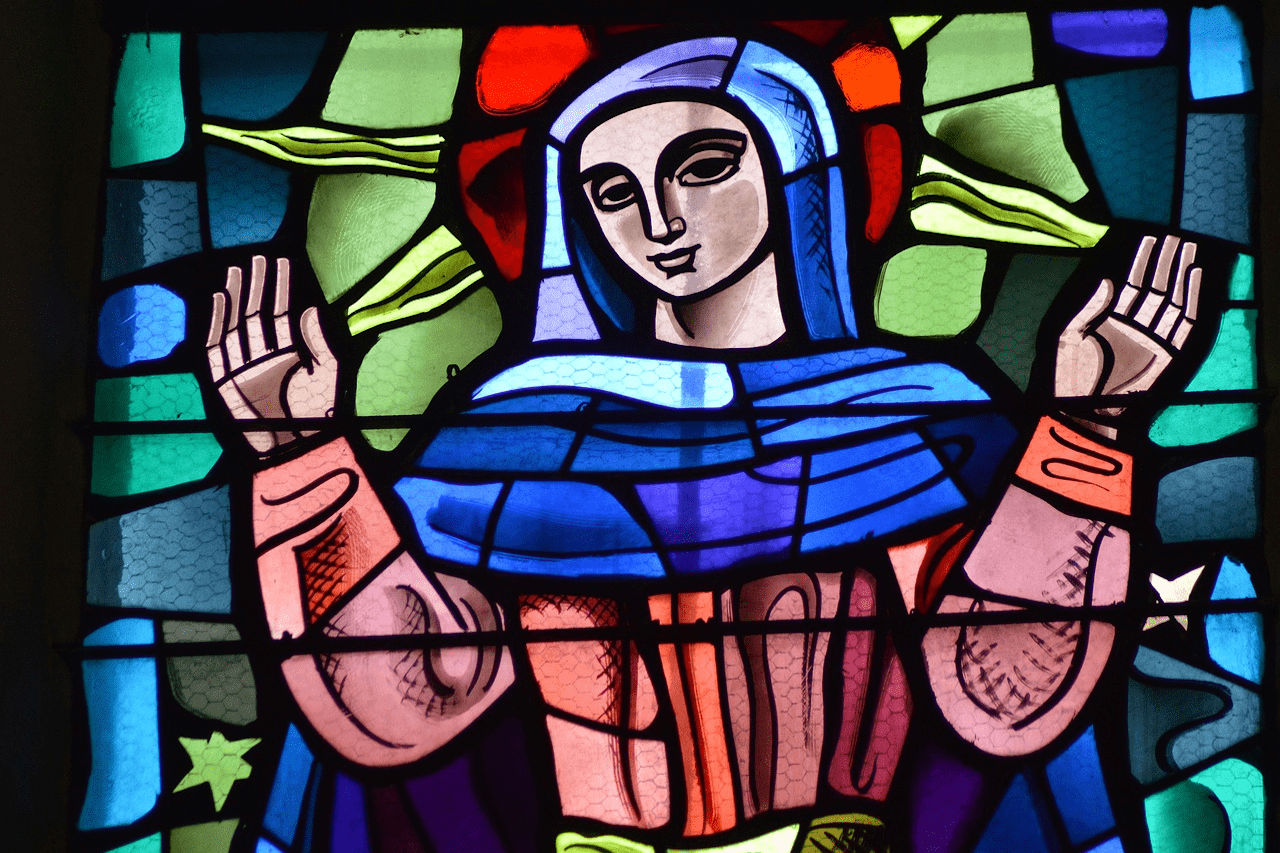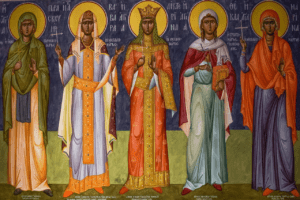Susan Roll is speaking to a conference in the Netherlands this week, and her regular Scripture reflection is not available. In its place, Susan has agreed to our publishing a paper she recently gave at a joint Zoom meeting of the Catholic Network for Women’s Equality (CNWE) and Concerned Lay Catholics (CLC) on March 3, 2024. This paper gives a very brief history of women’s participation in the early (and evolving) Christian community. Today, we present Part II. You can read Part 1 here: Women Are Not Roles in the Church. We Are Persons. And Always Have Been: Part I.
Part II
Up to the 1950’s women were not allowed to touch the sacred vessels for Mass or open the tabernacle under pain of excommunication. Even into the 21st century, a priest was legally allowed to forbid a woman lector to read from within the sanctuary. The long history of a churching rite for women after childbirth before they were allowed to enter the church building, up to the 1950’s, also points to a deep, visceral revulsion at the idea of women’s bodies and women’s blood flow in proximity to holy places. This may help explain why the official arguments against the ordination of women don’t make sense, and yet Catholic clergy and theologians risk losing their positions and reputations for even suggesting dialogue.
Nonetheless, proposals to study the possibility of ordaining women came up and disappeared at Vatican II, and then were brought to the 1971 Synod of Bishops by Winnipeg Cardinal Flahiff on behalf of the majority of the Canadian bishops. Catholics in Canada saw their counterparts in the Anglican Church of Canada, the United Church of Canada, and the Evangelical Lutheran Church in Canada, ordain women by the 1970’s. A U.S. grassroots movement began in 1975 at a Detroit conference that later became the Women’s Ordination Conference. By the early 1980’s similar organizations were founded in Canada, the U.K., and elsewhere.
The Vatican pushed back, hard, but the question of ordination gained traction, if anything, from the repression. In 1975 the Pontifical Biblical Commission studied whether anything in Scripture could decide the question one way or another, and voted that no, there wasn’t. Still in 1976 the Vatican issued the document Inter insigniores that made three wobbly arguments against ordaining women. One of these, that the priest must bear a “natural resemblance” to Christ, was dead within two years. In 1995 Ordinatio sacerdotalis repeated the ban and added that this was to be the definitive teaching – in other words, no discussion. By 1995 the Church of England was ordaining women and the TV news films spread across Europe, which seems to have alarmed the Vatican.
In 2002 seven women were ordained in a ship on the Danube, initiating the Roman Catholic Womenpriests movement. These women are ordained in documented apostolic succession, according to the rites of the Church, thus validly, but not legally according to canon law. However, canon law can be changed “by the stroke of a pen” – the Pope’s pen, if he so chooses. There are now some 300 Roman Catholic Women priests worldwide.
Feminist theology sprang up in academic institutions and local circles of women in the 1970’s, covering all aspects of theology: Scripture; moral theology and ethics from women’s perspectives; systematic theology that dealt with the big questions of a male God and a male saviour among others; liturgical imagery and language, and ways of praying, that assumed that the male was the norm; a new look at the sacraments that found how closely they resemble what women typically do in their homes; new interpretations of Church history “from the underside.” One notable Canadian contributor was Ellen Leonard, whose work took its place among that of feminist scholars worldwide.
I was recently asked by a young, male doctoral student in theology, whether I see any cracks in the stained-glass ceiling. Because I was fresh from the demonstrations in Rome during the Synod for women’s full human dignity, including the sacrament of ordination, I told him – yes. A hairline crack.
Susan Roll retired from the Faculty of Theology at Saint Paul University, Ottawa, in 2018, where she served as Director of the Sophia Research Centre. Her research and publications are centred in the fields of liturgy, sacraments, and feminist theology. She holds a Ph.D. from the Catholic University of Leuven (Louvain), Belgium, and has been involved with international academic societies in liturgy and theology, as well as university chaplaincy, Indigenous ministry and church reform projects.




I remember Ellen Leonard speaking about attending the first Women’s Ordination Conference in 1975. At that time Ellen said, they thought women’s full participation in all ministries of the church was immanent.
Your succinct history illuminates some of our blind spots, and the intransigence of our blindness. May brighter light enter through that hairline crack.
Thank you so much, Susan, for these two pieces on where we’ve been. May this “hairline crack” expand to a crevice and open up completely so that the light can pour in. It is well past time.